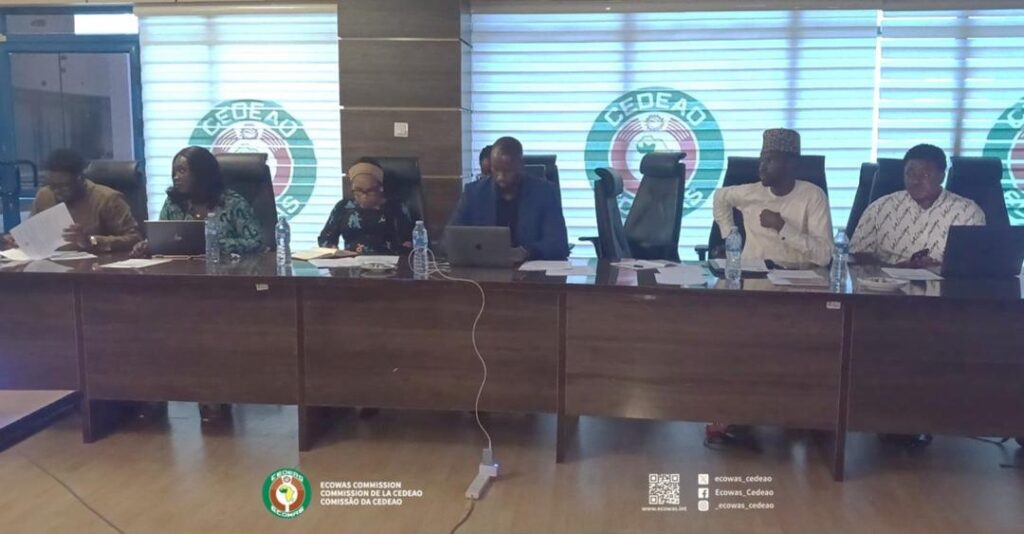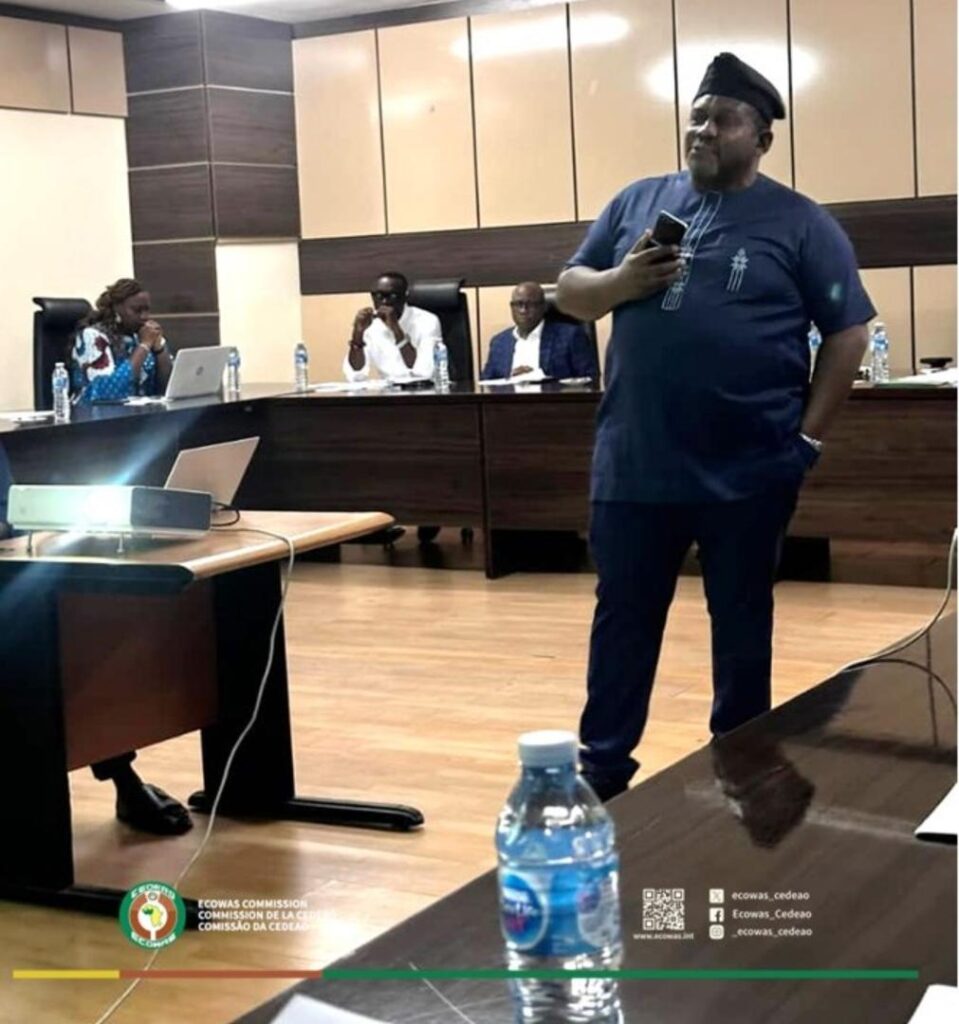ECOWAS Define Private Sector Engagement, Prepares for a Business a Regional Business Council Launch.
By Raymond Enoch
In a pivotal step toward economic transformation in West Africa, the ECOWAS Commission’s Department of Economic Affairs and Agriculture held a strategic internal consultative meeting on July 29, 2025, to finalize preparations for the formal launch of the ECOWAS Business Council (EBC)—a regional milestone set to redefine private sector engagement in the bloc.

Held at the ECOWAS headquarters in Abuja, the closed-door session brought together key directors and representatives from relevant directorates, unified by a shared goal: to usher in a new era of economic coordination and private sector empowerment across the member states.
The ECOWAS Business Council, approved by the Authority of Heads of State and Government, will emerge as the apex body representing the private sector’s voice within the region. It is designed to act as both a policy-shaping force and a bridge between businesses and regional leadership.

Representing the Commissioner for Economic Affairs and Agriculture, Massandjé Touré-Litse, was Dr. Tony Luka Elumelu, Director of Private Sector, who outlined the Council’s ambitious agenda. “The EBC is not just another institution—it is a bold statement of our commitment to economic integration, investment attraction, and competitiveness,” Elumelu stated. “Every establishment procedure has been rigorously followed. We have put in place a committee to define robust membership criteria and ensure a high-caliber, merit-based Council.”
The meeting delved deep into the structure, governance, and launch roadmap of the EBC, with an emphasis on inclusiveness, transparency, and impact. Elumelu encouraged participants to offer candid feedback, share bold ideas, and shape a Council that authentically reflects the region’s diverse business realities.
Opening the session, Mr. Kolawole Sofola, Director of Trade, praised the Directorate’s diligence in pushing forward the Council’s creation. “This marks a defining moment,” he said. “The EBC will be ECOWAS’ institutional arm for the private sector—just like other regional economic communities across Africa have established. It’s a necessary move to align economic policy with business priorities and deepen regional integration.”
Adding to the momentum, Mr. Chris Appiah, ECOWAS Director for Transport, called for a permanent and structured interface between ECOWAS Directorates and the incoming Business Council. “We must institutionalize dialogue,” Appiah emphasized. “Only then can we translate policy into prosperity, and barriers into bridges.”
The meeting concluded with strong consensus on the urgency and relevance of the EBC, which is slated for launch later in 2025. Once operational, it is expected to become a central pillar in ECOWAS’ economic architecture, championing private sector interests, catalyzing trade, and steering West Africa toward a more integrated and prosperous future.
As the countdown to the EBC launch begins, anticipation is high. The private sector—long seen as the engine of growth—is about to get its long-awaited seat at the decision-making table.







